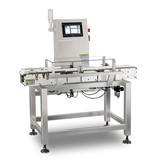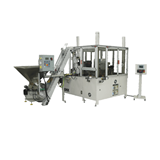While the nasty row over pricing carbon has at times dropped to farcical levels as our politicians appear to say anything to win their side of the argument, it's been enough for shoppers to drag out their worry-beads.
The latest reading of consumer confidence released this week showed sentiment has dropped to its lowest level since June 2010.
Oddly enough, this was a time when consumers were fretting over another levy - the mining tax.
The announcement of a carbon tax comes hot on the heels of the flood levy, which looks set to pass in the Senate, although the government has repeatedly emphasised it will be no more than the price of a cup of coffee for many people who have to pay it.
You can imagine coffee shop owners cringed every time that comparison was made.
One unintentional benefit from this war of words on what is still a hypothetical carbon tax - we have no detail other than its start date of July 1, 2012 - is it is another factor to keep the Reserve Bank on the sidelines regarding interest rates.
Not whether there is a carbon price or not, but the fact that the consumers' mood is souring.
The fall in confidence suggests that people won't be rushing out to the shops, and changing their behaviour from big savers to big spenders, anytime soon.
In its quarterly analysis on retailing, Deloitte Access Economics expects sales will continue slowly through the first half of 2011, although better news is likely in the second half of the year and beyond.
"One can't ignore the recent surge in Australia's income, and we suspect that over time, very low rates of unemployment should help to loosen the purse strings of consumers," Deloitte Access partner David Rumbens says.
His report showed that retailers have suffered their worst performance since the late 1980s during the past year.
The rapid turnaround in interest rates since hitting near record lows during the depths of the global financial crisis has been a jolt to consumers, but Rumbens also believes the advent of the GFC itself has scared people into paying off their debts or building a nest egg.
So when their TV screens are full of red-faced politicians screaming blue murder over broken election promises, cost of living pressures and the need to take action on climate change, said purse strings may remain firmly tied for now.
And little wonder that the 2.4 per cent fall in the March Westpac-Melbourne Institute sentiment index this week featured a spike in news recalled on "budget and taxation", outpacing recollections on interest rate news.
The news on "budget and taxation" was also regarded less favourably than that on rates.
The interest rate result was perhaps not that shocking given the Reserve Bank left the cash rate unchanged for a fourth straight month at last week's board meeting.
Treasurer Wayne Swan, unsurprisingly, blames the opposition for its "scare campaign" for knocking consumer confidence.
But Opposition Leader Tony Abbott does appear to have the edge in the argument over carbon at the moment.
Or is it just that people are just confused?
The weekly Essential Research online poll clearly showed respondents believed Prime Minister Julia Gillard broke an election promise in announcing a move towards a carbon tax.
It also found 48 per cent are opposed to a carbon tax, versus 35 per cent who support it.
But when asked whether the government should take action on climate change, 47 per cent said they need to action as soon as possible, almost the same amount who oppose a carbon tax.
Go figure.
Twenty-four per cent said we can put off taking action for a few years, while 19 per cent said we shouldn't bother at all.
Putting the carbon price row to one side, other data this week also suggested that the Reserve Bank won't be reaching for the interest rate lever until possibly the second half of the year.
It also showed the impact that this summer's natural disasters have had, particularly on the Queensland economy.
Demand for home loans across the nation dropped 4.5 per cent in January, ending six months of, albeit benign, growth.
The fall was led by a 16.4 per cent slump in Queensland, and notable falls in both NSW and Victoria - states that were also hit by floods.
But even the disaster-free ACT suffered a 3.6 per cent drop in mortgage demand.
Thursday's labour force data also recorded its first fall in the number of people employed in 18 months.
The 10,100 decline was largely the result of a hefty rise in full-time workers being offset by an even larger fall in part-time employment.
The unemployment rate remained at 5.0 per cent, and has yet to make a sustained break below this level that would raise alarms bells at the Reserve Bank.
Indeed, this week's data would seem to fit in with the theme that senior officers at the central bank have expressed at every opportunity in recent months.
That is, retaining the cautious stance of consumers is one factor when faced with a mining boom that is providing a huge boost to the nation's income and a tight labour market.
"At times when there is a lot of spare capacity, all sectors can grow quite quickly without the overall economy butting up against capacity constraints," Reserve Bank assistant governor Philip Lowe told an Australian Industry Group forum in Sydney this week.
"But this is not the situation we currently find ourselves in."
So while we remain glum, the Reserve Bank will be happy.




-160x160-state_article-rel-cat.png)




-160x160-state_article-rel-cat.png)

-160x160-state_article-rel-cat.png)









